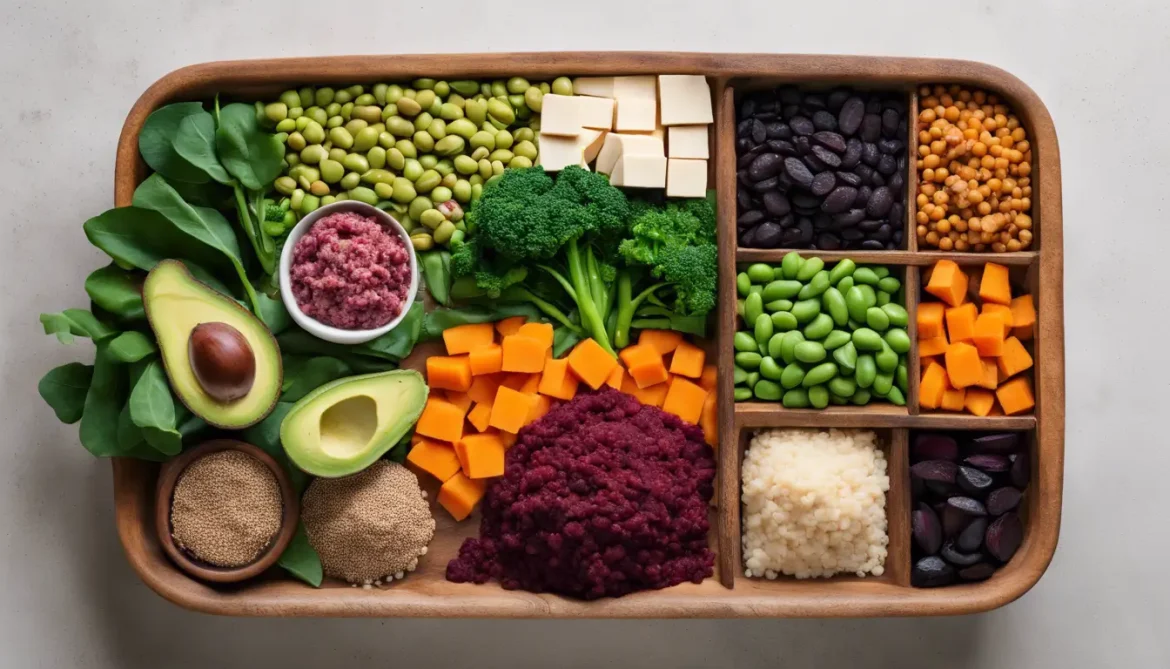Are you striving to give your little one the best nutrition? Picture this: your darling baby is now ready for solids. You’ve probably heard about iron rich foods for babies, but what are they? Why are they so vital?
I’m here to guide you through the importance of these iron rich foods for your baby’s health. So, come along, let’s dive into the world of iron-rich foods together.
25 Best Iron Rich Foods for Babies?
These foods are packed with iron, promoting healthy development for babies and toddlers while preventing iron deficiency.
- Pureed Red Meat
Pureed red meat is a highly recommended iron rich food for babies, providing essential nutrients for their growth and development. It is a great source of easily absorbable iron, crucial for preventing iron deficiency in infants.
By incorporating pureed red meat into a baby’s diet from an early age, you can help meet their daily iron needs for brain development and overall growth. Consider including pureed red meat in your baby’s meals to support their iron stores and overall health.
**Disclosure: This page contains affiliate links. If you choose to purchase after clicking a link, I may receive a commission at no extra cost to you.
- Iron-fortified Baby Cereal
Iron-fortified baby cereals are a convenient and popular option for introducing iron into your baby’s diet, supporting their growth and development. Babies and toddlers need iron for the production of red blood cells, which carry oxygen throughout the body.
- Mashed Lentils
Mashed lentils are an excellent choice for introducing iron rich foods to your baby’s diet. Here’s why:
- High iron and protein content: Lentils, also known as pulses, are rich in iron and protein, making them a nutritious option for babies.
- Easy preparation: Cook lentils until soft and mash them to a suitable texture for your baby.
- Versatile ingredient: Mashed lentils can be combined with other iron-rich foods, pureed fruits, or vegetables to create delicious and nutritious meals.
- Meeting daily iron needs: Offering mashed lentils helps meet your baby’s daily iron requirements for healthy growth and development.
RELATED ARTICLE: 10 Pureed Recipes when Starting Solids
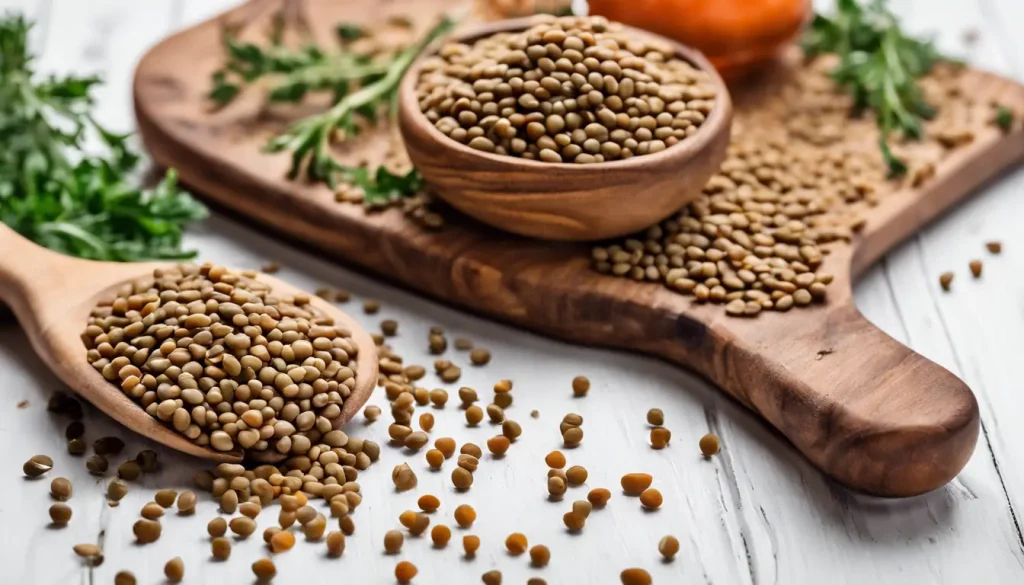
- Ground Turkey
To continue building a diverse repertoire of iron rich foods for your baby, consider introducing ground turkey into their diet. Ground turkey is a great source of iron, providing a lean and easily digestible protein option.
It can be pureed and blended into a smooth texture, making it suitable for babies transitioning to solid foods.
Adding ground turkey to homemade baby food recipes ensures a balanced intake of iron and protein. This introduces your baby to iron from animal sources, which is more easily absorbed than non-heme iron found in plant-based foods.
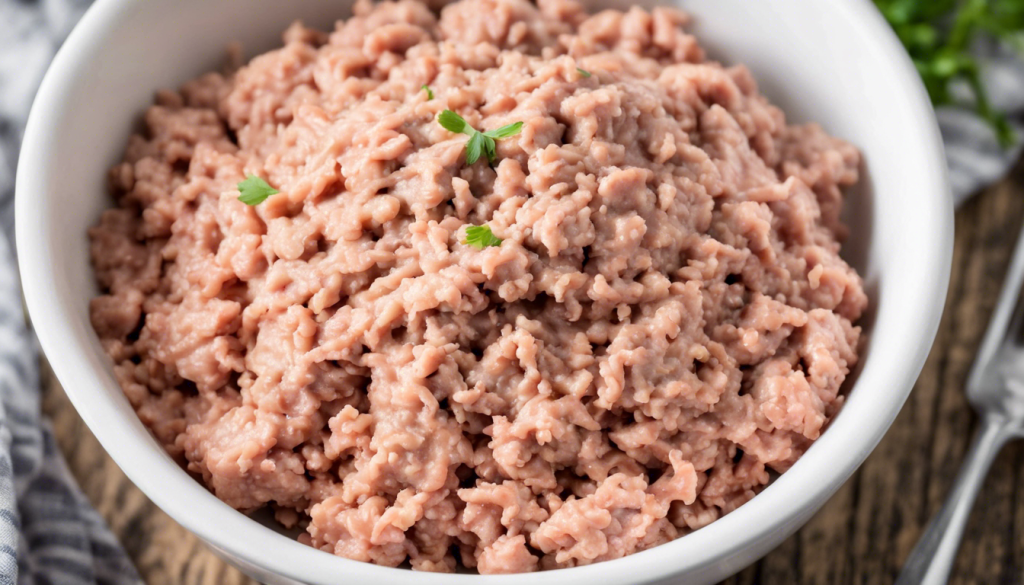
- Pureed Spinach
Pureed spinach is a nutritious and iron-rich food that’s beneficial for the growth and development of babies. Here are four reasons why pureed spinach should be included in your baby’s diet:
- Spinach is high in iron, which is essential for the production of red blood cells and oxygen transport in the body.
- Pureed spinach is an excellent source of leafy greens, providing important vitamins and minerals for your baby’s overall health.
- It can be easily pureed to a smooth texture, making it suitable for babies who are transitioning to solid foods.
- Spinach can be fortified with additional iron, ensuring that your baby gets enough of this important nutrient.
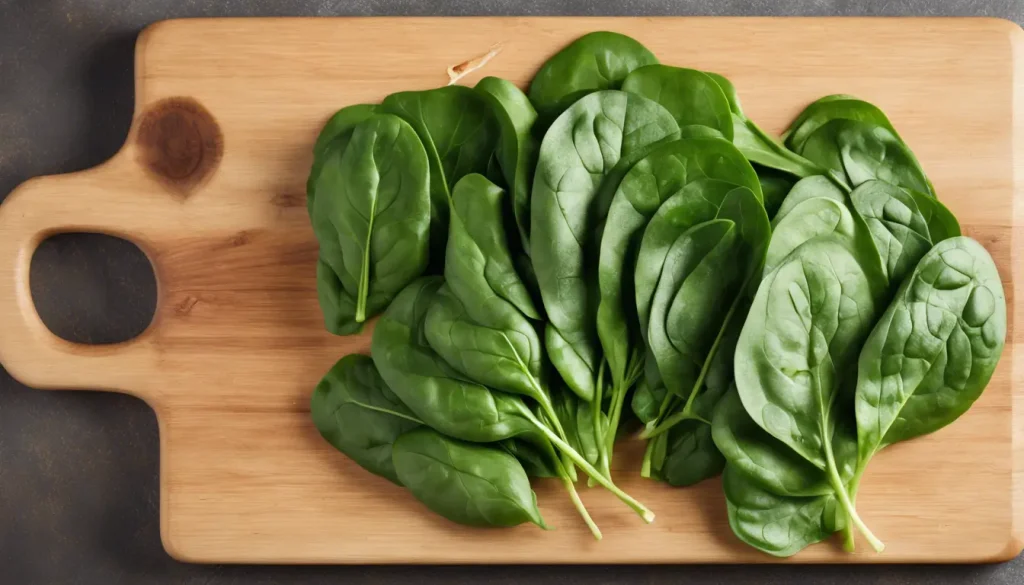
- Pureed Broccoli
Introducing pureed broccoli into your baby’s diet is a great way to provide them with a nutritious and iron-rich food option. Pureed broccoli is high in iron and easily digestible, making it suitable for young babies.
- It can be prepared by steaming and pureeing to a smooth consistency.
Pairing pureed broccoli with vitamin C-rich foods enhances iron absorption, making it a beneficial addition to your baby’s diet.
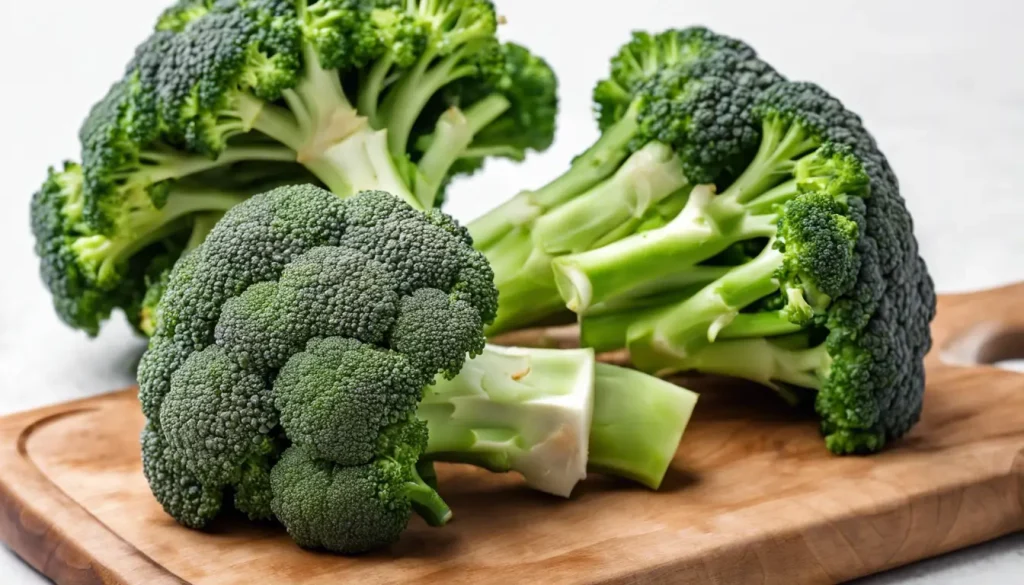
- Sweet Potato
If you’re looking for another iron-rich food to introduce to your baby, consider sweet potatoes. Here’s why:
- High iron content: Sweet potatoes are an excellent source of iron, supporting healthy growth and development.
- Palatable and versatile: Their natural sweetness makes sweet potatoes a tasty and adaptable option for babies.
- Easy to consume: Sweet potatoes can be pureed or mashed to a smooth consistency, making them easy for babies to eat and digest.
- Nutrient-rich: Sweet potatoes provide not only iron but also essential nutrients like fiber and vitamins, promoting overall health and well-being.
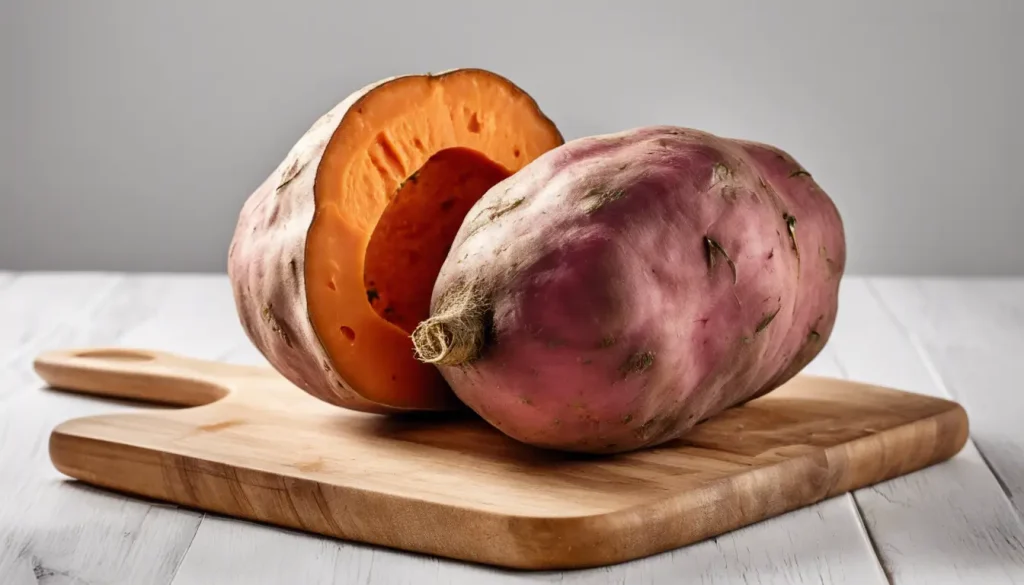
- Mashed Chickpeas
Mashed Chickpeas are a nutrient-rich and versatile option for introducing iron rich foods to your baby. They provide essential iron for your baby’s growth and development.
- Prepare them by mashing cooked chickpeas to a smooth consistency, making them easy for infants to consume.
Mashed chickpeas offer a plant-based source of non-heme iron, supporting overall iron intake. You can mix them with other pureed vegetables or fruits to enhance flavor and nutritional value. Remember, vitamin C aids in iron absorption, so include foods like citrus fruits and leafy greens.
Read about non-heme iron vs heme:
Non-heme iron, which accounts for the majority of the iron in plants, is less well absorbed. More than 95% of functional iron in the human body is in the form of heme. Hence, heme should be considered an essential nutrient for humans, although historically iron is the primary concern in nutrition studies.
National Library of Medicine
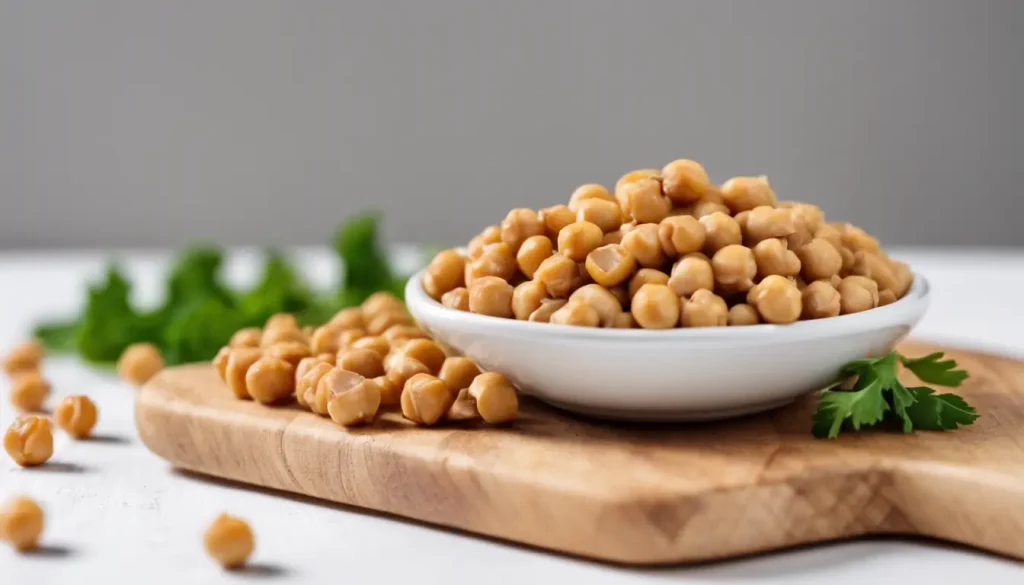
- Iron-fortified Baby Rice
Iron-fortified baby rice is a reliable source of easily digestible iron, making it an excellent addition to your baby’s diet for optimal growth and development. Here’s why it’s a great choice:
- Easily Digestible: Iron-fortified baby rice provides a form of iron that’s easily absorbed by your baby’s body.
- Early Introduction: It can be introduced as an early solid food to meet your baby’s increasing iron needs.
- Convenience: This fortified rice is convenient and versatile, making it easy to incorporate into your baby’s diet.
- Essential Nutrition: Offering iron-fortified baby rice as part of a varied diet ensures your baby gets the essential iron they need for optimal health.
- Pureed Prunes
Pureed prunes are a nutritious and delicious option for introducing iron-rich foods to your baby’s diet. They contain 9% of your baby’s daily recommended iron needs in just 1 milligram. Prunes are also rich in potassium and vitamin A, supporting fluid balance and eye health.
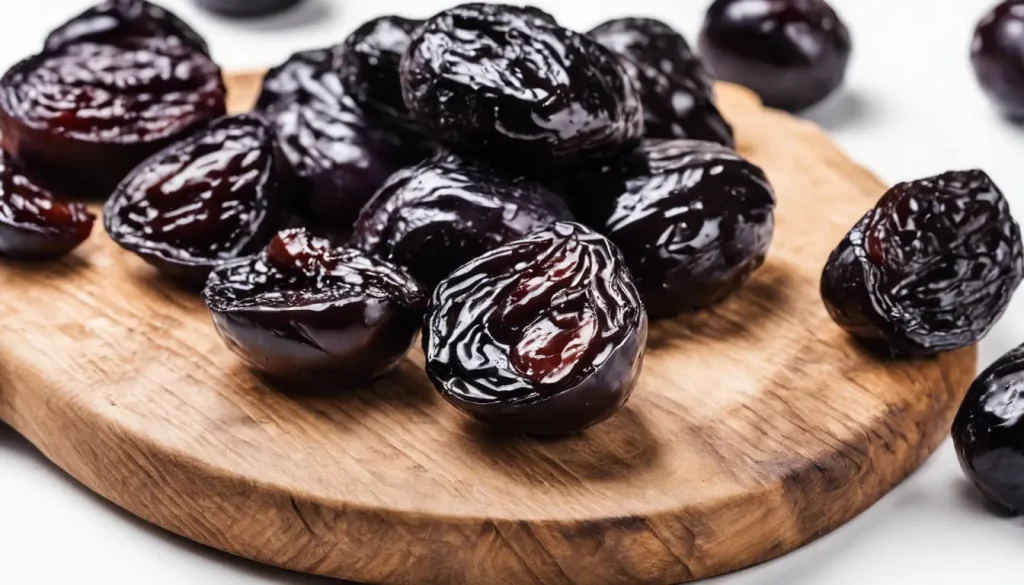
- Quinoa Baby Flakes
Quinoa is a nutritious grain-like seed that offers various health benefits. It is packed with essential nutrients and can be a great addition to a baby’s diet.
Here are four reasons why it’s a great choice for infants starting solids:
- High in iron: Quinoa baby cereal contains a significant amount of iron, which is crucial for your baby’s growth and development.
- Plant-based source: It’s ideal for vegetarian or vegan families looking to meet their baby’s iron needs.
- Easy to digest: Quinoa baby cereal is gentle on your baby’s tummy and can be mixed with vitamin C-rich purees for better iron absorption.
- Convenient introduction to grains: It provides a good texture and taste while meeting your baby’s iron requirements, supporting their brain development and overall growth.
Learn more about the nutrition of quinoa and find 14 recipe ideas for babies on Mom Junction.
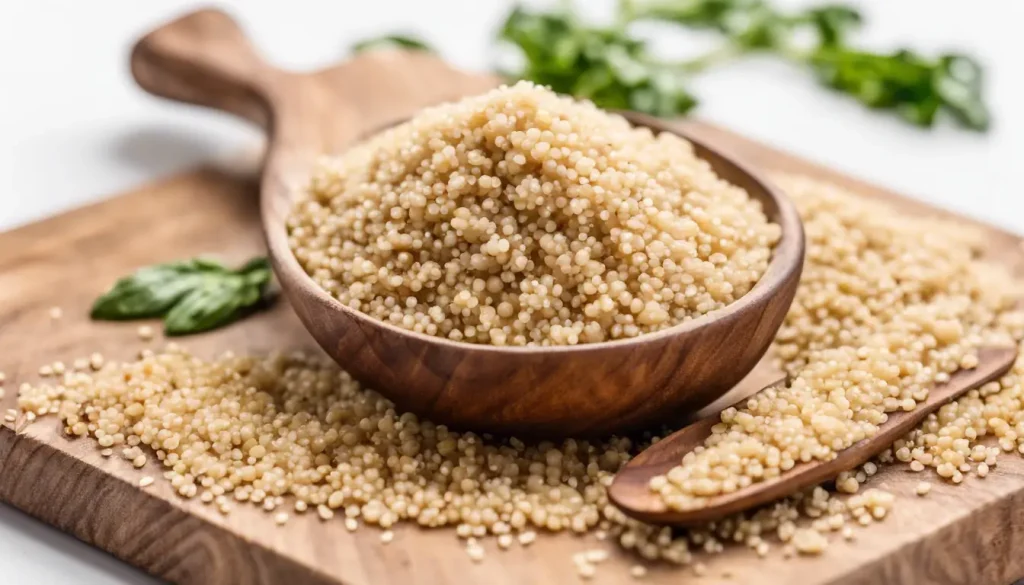
- Kidney Beans
Kidney beans are an excellent choice for introducing iron-rich foods to your baby’s diet. These beans are packed with iron and protein, making them a nutritious option.
- Simply mash cooked kidney beans and blend them with other baby-friendly ingredients for a nutrient-dense meal.
The soft texture of mashed kidney beans is perfect for babies transitioning to solid foods. Including mashed kidney beans in your baby’s diet helps meet their daily iron needs for healthy growth and development.
Read more about kidney beans for babies starting solids.
RELATED ARTICLE: Toddlers Loss of Appetite Phase
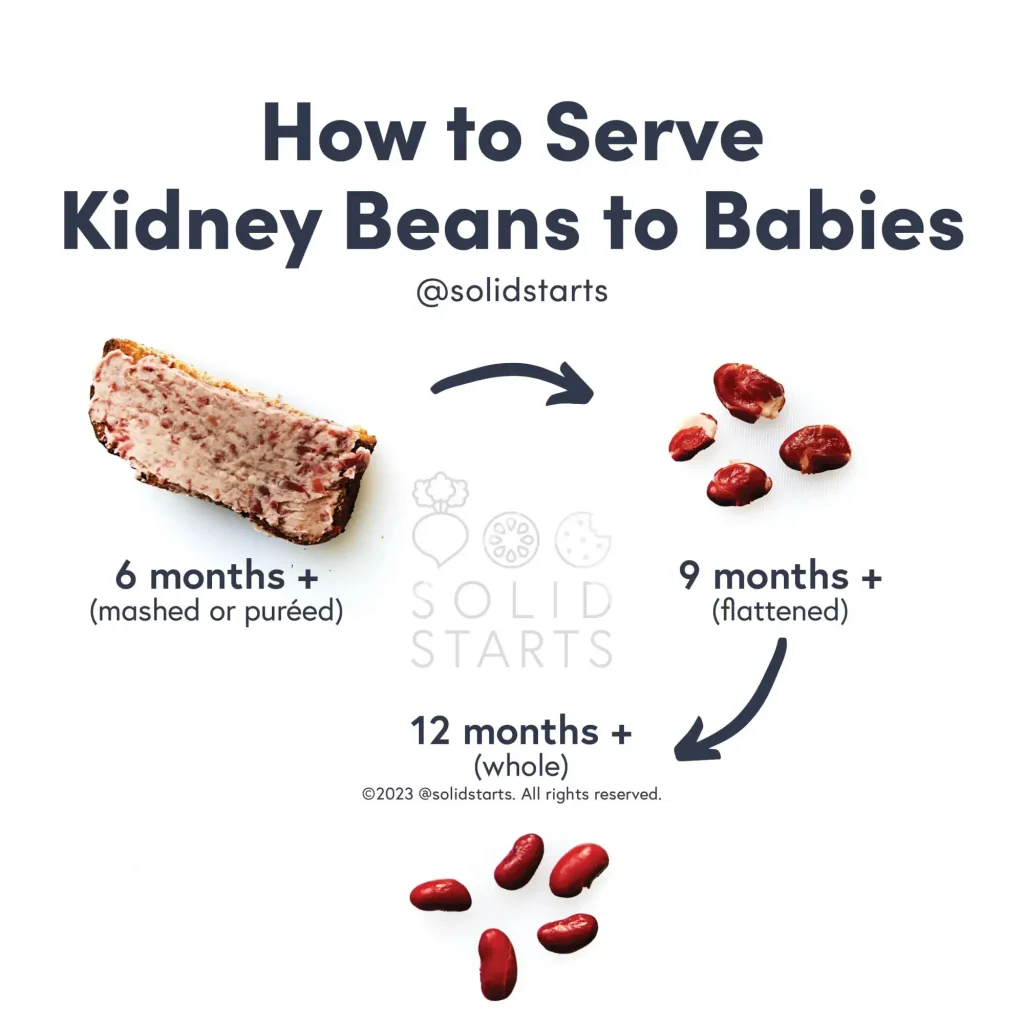
- Tofu
To further expand your baby’s iron-rich food options, consider introducing pureed tofu into their diet.
Here’s why it’s a great choice:
- High in iron: Pureed tofu is a suitable food for babies as it provides about 15% of their daily iron needs in just a quarter cup.
- Versatile serving options: You can serve tofu as pan-fried strips or blend it with mashed avocado for added texture and taste.
- Calcium source: Tofu is also a good source of calcium, essential for your baby’s bone and muscle health.
- Plant-based iron: Pureed tofu is an excellent way to introduce plant-based iron sources to your baby’s diet.
Benefits of tofu for babies and Recipes
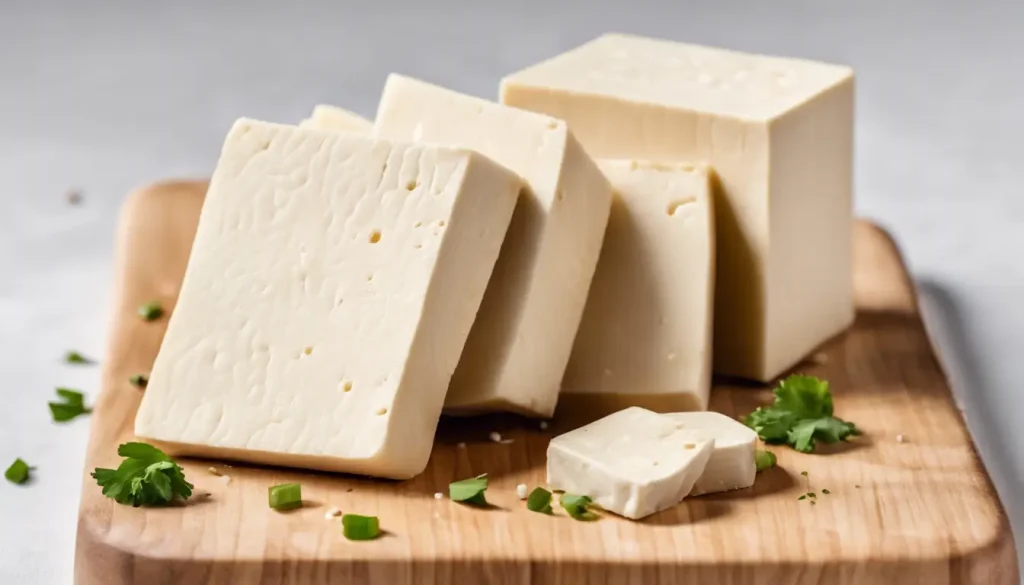
- Peas
Including mashed peas in your baby’s diet is an excellent choice for introducing iron-rich foods and promoting their growth and development.
- Peas are a great source of iron, providing essential nutrients for your baby’s overall health.
The texture of mashed peas makes it easy for babies who are starting solids to consume and digest.
Additionally, mashed peas can be combined with other iron-rich foods to create nutritious and balanced meals for your little one.
Peas benefits and recipes for babies.
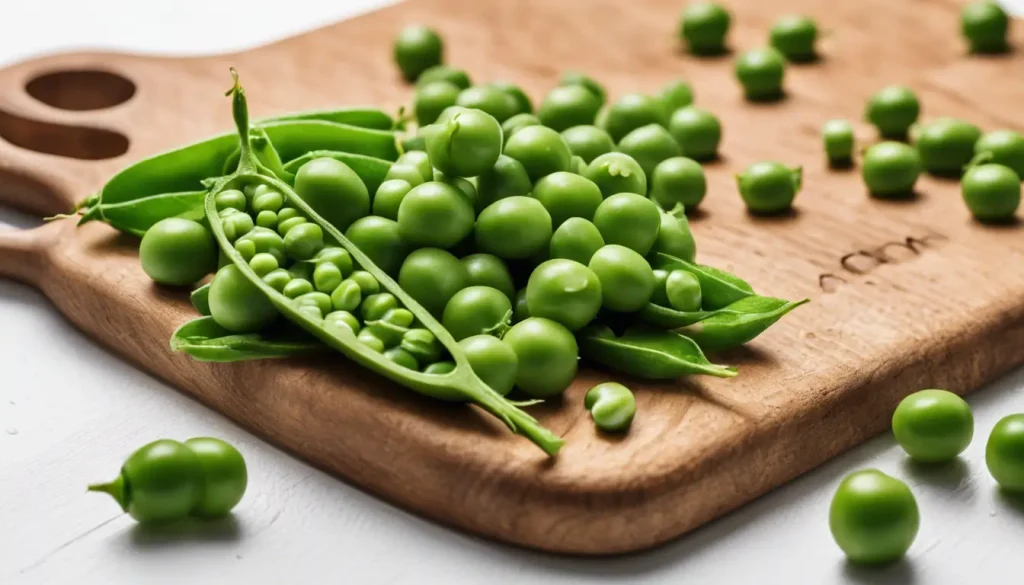
- Pumpkin
Pumpkin puree is an excellent choice as one of the best iron-rich foods for babies due to its high iron content and easy-to-digest nature.
Here are some reasons why you should consider introducing pumpkin puree to your baby’s diet:
- Versatility: Pumpkin puree can be mixed with other iron-rich foods like spinach, pureed meat, or mashed avocado to create nutrient-dense meals.
- Accessibility: Pumpkin puree is a convenient and accessible option for parents to meet their baby’s iron needs.
- Soft Texture: Pureed pumpkin offers a soft and palatable texture, making it suitable for early eaters.
- Iron Absorption: Combining pumpkin puree with vitamin C-rich foods, like citrus fruits or strawberries, can enhance iron absorption in babies.
Benefits of Pumpkin for babies

- Mashed Edamame
If you’re looking for another iron-rich food to add to your baby’s diet, consider mashed edamame. Edamame is a great choice due to its high iron content and soft texture, making it suitable for baby-led weaning or as a puree.
It contains non-heme iron, a plant-based source that can be paired with vitamin C-rich foods for better absorption.
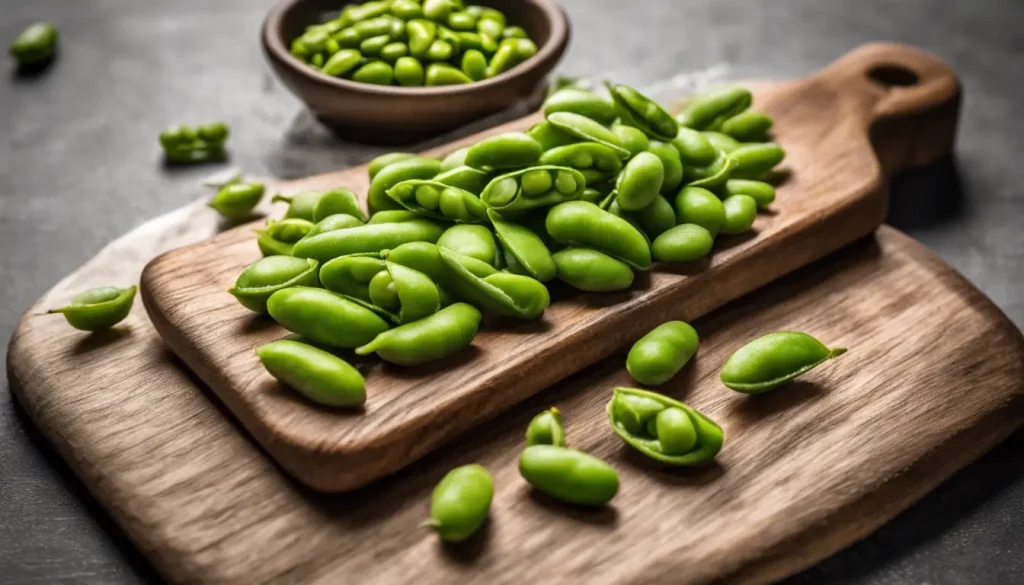
- Kale
Pureed kale is an excellent choice for introducing iron-rich foods to your baby’s diet.
Here’s why:
- High iron content: Pureed kale is a leafy vegetable packed with iron, making it a nutritious option for your baby’s growth and development.
- Easy to prepare: You can easily make smooth puree from kale, making it convenient for babies to consume and digest.
- Supports red blood cell production: The iron in pureed kale helps in the production of healthy red blood cells in infants.
- Balanced diet: Introducing pureed kale alongside other iron-rich foods like spinach, fortified cereal, and pureed meat ensures your baby meets their daily iron needs.
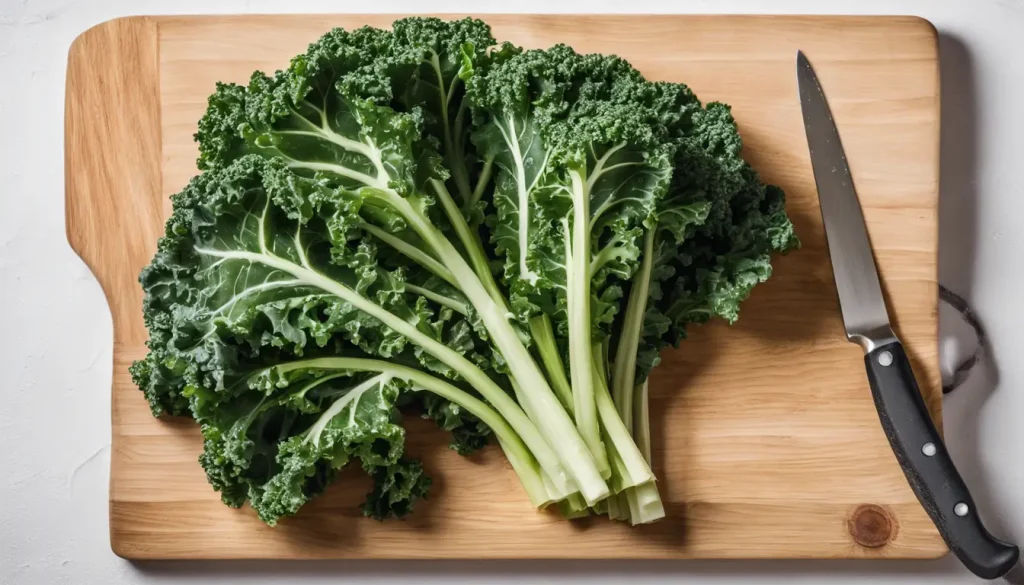
- Iron-fortified Oatmeal
Iron-fortified oatmeal is a highly recommended choice as one of the best iron-rich foods for babies. It provides 2 milligrams of iron in just one tablespoon, making it a convenient and easily digestible option. By mixing it with vitamin C-rich puree like applesauce or pureed mandarin oranges, you can enhance iron absorption for your baby. Additionally, introducing iron-fortified oatmeal into their diet early on helps maintain healthy iron levels and supports their growth and development.
| Iron-fortified Oatmeal |
|---|
| – Convenient and easily digestible |
| – Provides 2 milligrams of iron in one tablespoon |
| – Enhance iron absorption by mixing with vitamin C-rich puree |
| – Supports growth and development |
- Black Beans
Black beans are an excellent choice for babies as one of the best iron-rich foods.
Here’s why:
- High iron content: Black beans are rich in iron, which is crucial for your baby’s development and overall health.
- Nutritious addition: Besides iron, black beans provide protein and fiber, making them a nutritious addition to your baby’s diet.
- Soft texture: The mashed consistency of black beans makes them easy for babies to consume, especially during their transition to solid foods.
- Versatile ingredient: You can incorporate mashed black beans into various baby-friendly recipes, such as purees, soups, and finger foods, to enhance your baby’s iron intake.
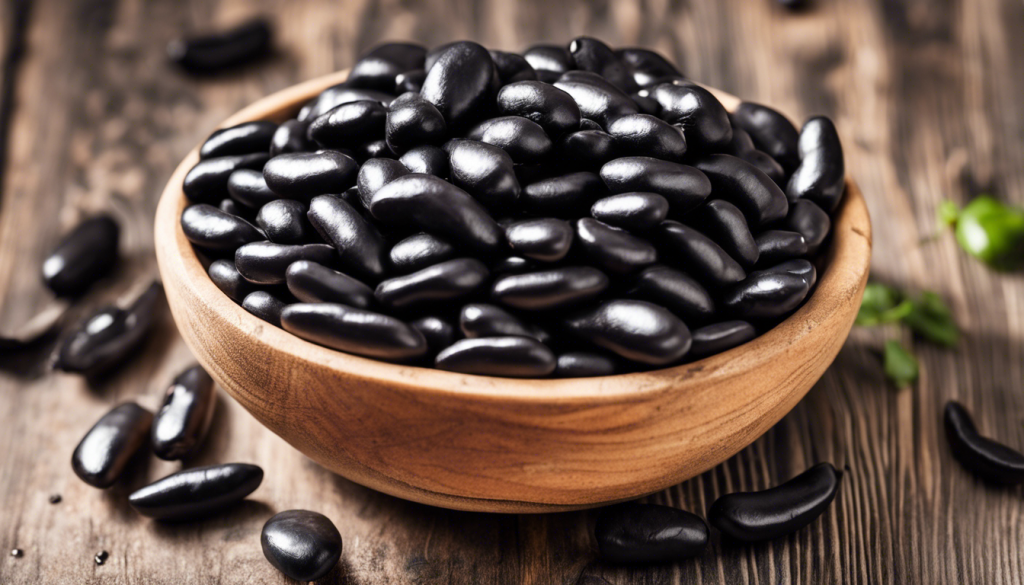
- Ground Chicken
Ground chicken is a versatile and iron-rich option that can be easily incorporated into your baby’s diet for optimal development and overall health. It is a great source of iron, providing a convenient way to introduce iron-rich meats to your little one.
Pairing ground chicken with vitamin C-rich foods, such as pureed strawberries or red bell peppers, can enhance iron absorption. Ensure it is thoroughly cooked and prepared safely for your baby’s health.
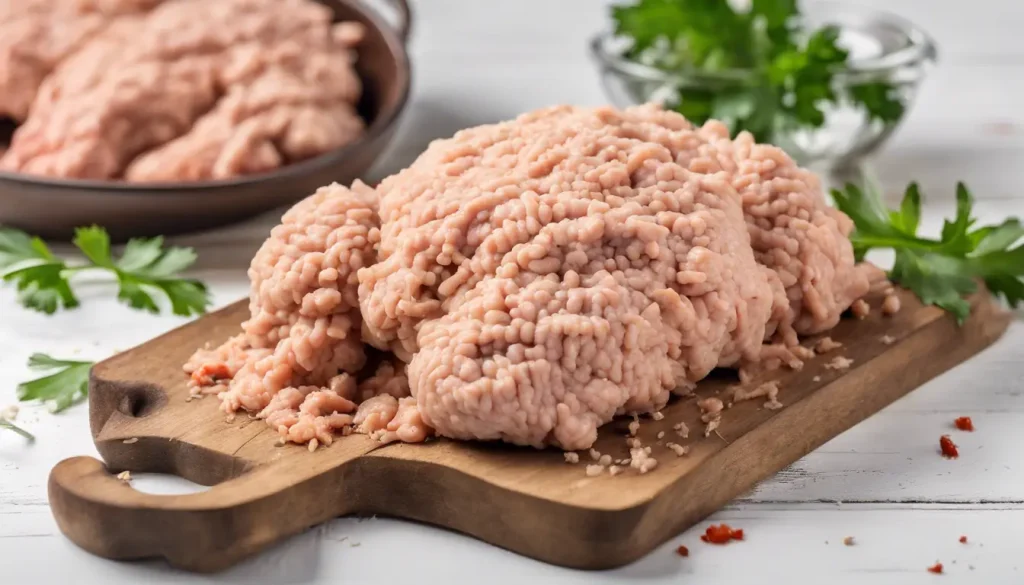
- Avocado
If you want to introduce an iron-rich food to your baby’s diet, consider mashed avocado.
Here are some reasons why mashed avocado is a great option:
- Contains about 0.6 mg of iron per 100 grams.
- Easy to prepare and can be mashed to a smooth consistency for young eaters.
- Provides healthy fats and essential nutrients.
- Can be mixed with other iron-rich purees or served as a standalone food.
Mashed avocado is a versatile and nutritious choice for introducing iron to your baby’s diet.
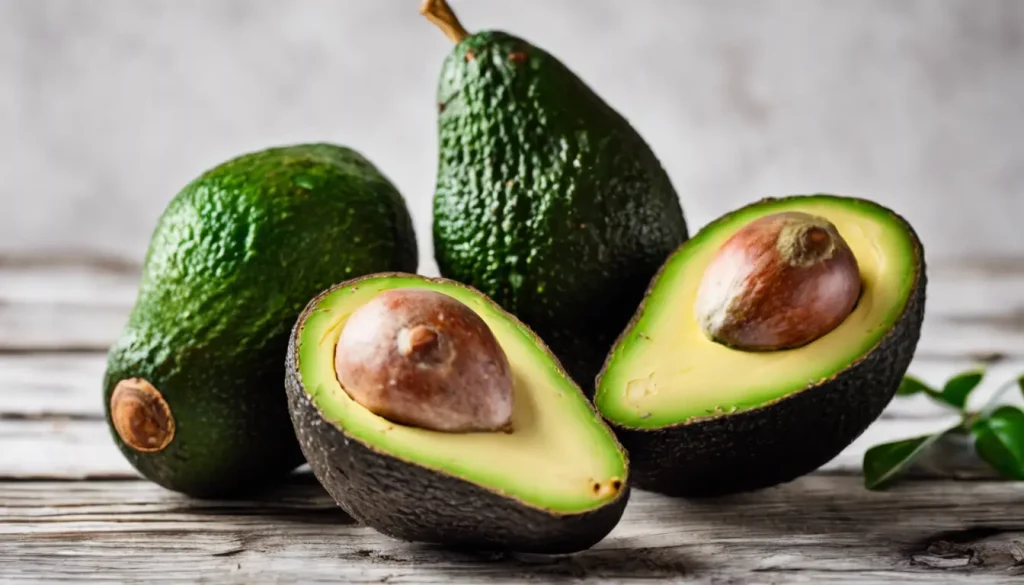
- Teething Biscuits (Iron-fortified)
To continue building your baby’s iron intake, consider incorporating iron-fortified teething biscuits into their diet during the teething phase. These biscuits are fortified with iron, making them a convenient and tasty option for supporting your baby’s iron needs.
They provide a soothing solution for teething discomfort while also contributing to your baby’s iron intake. By introducing these biscuits, you can offer an enjoyable and beneficial addition to your baby’s diet, ensuring they receive the necessary iron for their growth and development.
- Peanut Butter (For babies above 6 months and conforming to allergy guidelines)
For babies above 6 months, incorporating peanut butter into their diet is a great way to introduce an iron-rich food while adhering to allergy guidelines.
There are four reasons why peanut butter is a good choice:
- Smooth and easily spreadable: Ensure it’s safe for babies to prevent choking hazards.
- Pairing options: Combine with whole grain bread or crackers for a balanced snack.
- Creative purees: Mix with fruits like bananas or applesauce for a tasty iron-rich puree.
- Allergy precautions: Monitor for reactions and consult a pediatrician before introducing allergenic foods.
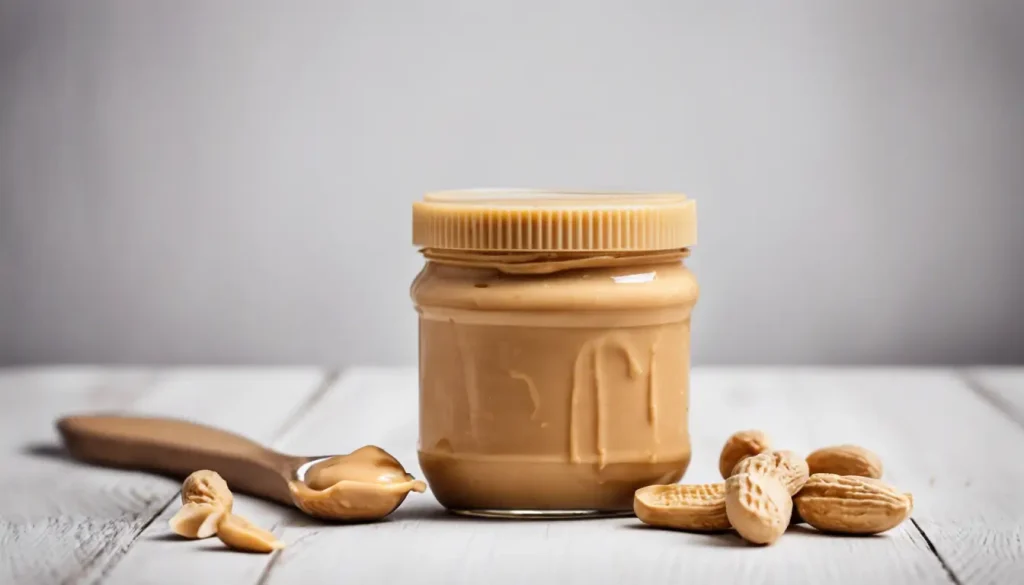
- Beets
Pureed beets are a delicious and nutritious option to introduce iron-rich foods into your baby’s diet. They are packed with iron, supporting healthy red blood cell production.
- To enhance iron absorption, pair pureed beets with foods rich in vitamin C, such as citrus fruits and leafy greens.
Incorporating pureed beets into your baby’s diet helps meet their increasing iron needs as they transition to solid foods. Try this vibrant and sweet puree to provide essential nutrients for your little one’s growth and development.
14 Beet Recipes for Your 6 month old starting solids
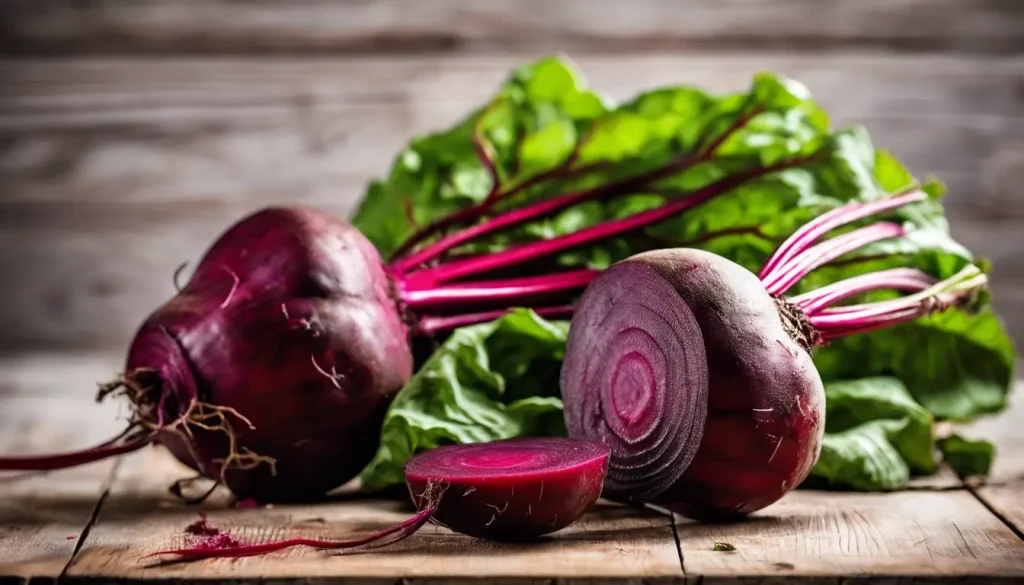
- Ground Beef
As you explore iron-rich foods for your baby, one excellent option to consider is ground beef.
Here’s why it’s a good source of iron for your child’s needs:
- High Iron Content: Ground beef is rich in iron, which is essential for your baby’s growth and development.
- Versatile and Easy to Include: You can introduce ground beef to your baby in pureed form or as small, well-cooked pieces, making it easy for them to eat.
- Pair with Vitamin C: Combining ground beef with vitamin C-rich foods enhances iron absorption.
- Variety of Recipes: Ground beef can be incorporated into various baby-friendly recipes, providing a tasty and iron-rich option for meals.
More about ground beef for little ones during baby-led weaning and recipes.
How Much Iron Do Babies Need Per Day?
To ensure proper development and overall health, babies need a daily intake of iron. Babies aged 6-12 months require about 11 mg of iron per day, while toddlers aged 1-3 years need about 7 mg per day. (SOURCE)
Iron-rich foods, such as animal products, fortified cereals, and pureed meat, should be offered at each meal and snack time to ensure they’re getting enough iron.
| Age Group | Iron Need (in milligrams per day) | Additional Notes |
|---|---|---|
| Infants(Birth-6 months) | As per mother’s diet/iron drop if required | Infants who breastfeed tend to get enough iron from their mothers. Babies given iron-fortified formula do not need added iron. |
| 7-12 months | 11 | Iron-rich foods (fortified cereal and puréed meats) are introduced into the diet. |
| 1-3 years | 7 | N/A |
| 4-8 years | 10 | N/A |
| 9-13 years | 8 | N/A |
| Teen boys | 11 | N/A |
| Teen girls | 15 | Teen girls need additional iron to replace what they lose monthly when they begin menstruating. |
| Age Group | Iron Need (in milligrams per day) |
|---|---|
| 7-12 months | 11 |
| 1-3 years | 7 |
| 4-8 years | 10 |
| 9-13 years | 8 |
| Teen boys | 11 |
| Teen girls | 15 |
Combine With Vitamin C
To enhance the absorption of iron in babies, it’s recommended to combine iron-rich foods with vitamin C sources.
Here are some ways you can do this:
- Pair iron-rich foods like fortified cereal with vitamin C-rich fruits such as oranges or strawberries.
- Serve pureed meat, like beef or chicken, with vitamin C-rich vegetables like bell peppers or leafy greens.
- Include vitamin C-rich foods like guava or papaya alongside iron-rich foods like spinach or lentils.
- Enhance iron absorption by offering iron-rich foods with vitamin C sources like tomatoes or citrus fruits.
How Can I Increase My Baby’s Iron Intake?
You can increase your baby’s iron intake by offering a variety of iron-rich foods and pairing them with vitamin C sources to enhance absorption. Include foods high in vitamin C, such as strawberries and oranges, with iron-rich options like pureed meat or fortified cereals.
Vitamin C helps the body absorb iron, ensuring that your child gets the type of iron they need. By incorporating these foods into your baby’s diet, you can support their iron intake and promote their overall health.
What are Some Signs That My Baby Might Not Be Getting Enough Iron?
If your baby isn’t getting enough iron, there are several signs to look out for that may indicate a potential deficiency. These signs include:
Data taken from Mayo Clinic
- Light pink skin color, also called pallor, to the edge of the eyelids, lips, gums or nail beds.
- Tiredness and low energy, also called fatigue.
- Shortness of breath during exercise.
- Cold hands and feet.
- Slowed growth and development.
- Poor appetite.
- Irregular rapid breathing.
- Behavior problems or more short-tempered than usual.
- Frequent infections.
- Unusual cravings for things that contain few or no nutrients, such as ice, dirt, paint or starch.
Additionally, delayed growth or developmental milestones can also be a sign of inadequate iron intake in babies. If you notice any of these signs, it’s important to seek medical advice from a registered dietitian or the American Academy of Pediatrics.
What Are Some Iron-rich Baby Food Recipes?
For iron-rich baby food recipes that are easy to prepare and nutritious, consider incorporating pureed meats, mashed beans or lentils, cooked and pureed dark leafy greens, soft-cooked vegetables, and iron-fortified infant cereals. Here are some ideas to get you started:
| Recipe | Ingredients |
|---|---|
| Pureed Meat | Cooked chicken or beef |
| Lentil Mash | Mashed lentils |
| Spinach Puree | Cooked and pureed spinach |
| Veggie Medley | Soft-cooked broccoli and carrots |
These recipes are packed with iron and are suitable for babies and toddlers. Remember to pair iron-rich foods with vitamin C sources like citrus fruits to enhance iron absorption.
How Can I Store Iron-rich Baby Food?
Looking to store iron-rich baby food? Here are some tips to ensure freshness and safety:
- Store iron-rich baby food in airtight containers to maintain freshness and prevent contamination.
- Consider freezing homemade iron-rich baby food in ice cube trays for convenient single servings.
- Refrigerate iron-rich baby food promptly after preparation to prevent bacterial growth and spoilage.
- Label stored iron-rich baby food with the date of preparation to ensure freshness and track expiration.
What Are Some of the Best Iron-fortified Baby Cereals?
To continue our discussion on iron-rich baby food storage, let’s now explore some of the best iron-fortified baby cereals available in the market. These cereals are a great option to ensure that your baby gets the necessary iron intake for their growth and development.
Some popular choices include:
- Gerber Single Grain Oatmeal Baby Cereal
- Happy Baby Organic Probiotic Baby Cereal
- Earth’s Best Organic Whole Grain Baby Oatmeal Cereal
- Beech-Nut Complete Rice Baby Cereal
- Nestle Cerelac Wheat with Milk Cereal
These cereals are fortified with iron and provide essential nutrients for your baby’s health.
Are there any Iron-rich Baby Snacks?
Iron-rich baby snacks offer a convenient and nutritious way to ensure your little one gets the necessary iron intake for their growth and development.
Here are some iron-rich baby snack options to consider:
- Mashed beans and lentils: These snacks provide a good source of iron, fiber, and protein.
- Soft cooked vegetables: Carrots and broccoli are excellent iron-rich finger foods for babies.
- Iron-fortified infant cereals: These convenient snacks offer a good source of iron.
- Prunes: Rich in iron and other essential nutrients, they can be served as a healthy snack for babies.
Including these snacks in your baby’s diet can help boost their iron levels and support their overall health.
What Can I Do if My Baby Doesn’t Like Iron-rich Foods?
If your baby doesn’t like iron-rich foods, there are strategies you can try to encourage their acceptance.
- Mix iron-rich foods with vitamin C-rich options like strawberries to enhance iron absorption and make them more appealing.
- Experiment with different cooking methods and textures, such as pureed meat or soft-cooked vegetables.
- Offer a variety of iron-rich foods throughout the day, including fortified cereals.
- Consult with a pediatrician to determine if iron supplementation is necessary.
Stay patient and persistent in introducing iron-rich foods to your baby.
Frequently Asked Questions
What Food Is Highest in Iron for Babies?
You wanna know what food has the most iron for babies? Spinach, lentils, beef, chicken, and fortified cereals are all great choices. So load up that plate and watch ’em grow strong!
How Can I Get My Baby’s Iron Up Fast?
You can boost your baby’s iron quickly by incorporating iron-rich foods into their diet. Try introducing pureed meats like chicken or beef, iron-fortified cereals, and cooked dark leafy greens. Pair them with vitamin C-rich foods for better iron absorption.
Which Fruit Is Rich in Iron?
You can increase your child’s iron intake by incorporating iron-rich fruits into their diet. Some examples include apples, apricots, pomegranate seeds, prunes, and raisins. These fruits are not only delicious but also packed with the essential nutrients your child needs.
Conclusion
As a parent, I know the importance of feeding my little one with iron-rich foods. They aren’t just essential for their overall health but also play a vital role in their development.
I found that foods packed with iron, like vibrant spinach leaves and juicy citrus fruits, aren’t only nutritious but also quite appealing to the eyes. I try to offer a variety of options to ensure my baby gets enough iron for their growth.
I learned that combining these foods with vitamin C can enhance iron absorption. So, I make it a point to include a colorful array of these iron-rich delights in my baby’s meals and it’s a joy to see them thrive!
